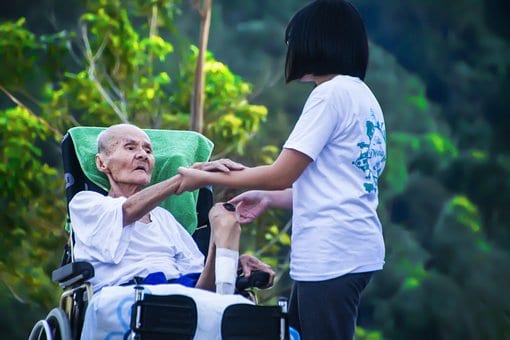How Caregivers Can Best Care for Themselves
by Robert Stephens
There is nothing fictional in the most famous line from The Wizard of Oz: “There’s no place like home.” It’s true when we’re growing up … and it’s just as true as we reach our twilight years. Which is why more than 42 million Americans provide care inside the home for aging family members.
But a growing question is: How long can a caregiver go on? It has inspired Daniel Paulson, Assistant Professor of Psychology, to launch the Orlando Later-Life Development Research (OLDeR) Lab at UCF.
“Through our research, we have reason to believe caregivers focus so much on the needs of loved ones that they neglect their own needs,” he says.
As part of the program, Paulson and his colleagues lead a free weekly support group for caregivers because, as he says, “We love what these caregivers are doing, and we want them to enjoy it for as long as possible.”
Here are his 10 suggestions to make “home” the best place in the world for everyone.
1. Get yourself out of the house.
Any activity, regardless of how enjoyable or motivating, can lead to burnout if there’s no foreseeable break in the schedule. The best solution? Respite. Caregivers who get out of the house for a few hours at least once a week are less likely to experience burnout. We encourage people in our UCF Caregiver Support Group to make each meeting their special time out every week. Go to dinner. Go bowling. And come to the group. Those who get away like that regularly are able to provide better in-home care for longer.
2. Take care of your loved one’s social needs.
Just because someone has memory problems doesn’t mean that they lose their desire to connect with others. Social interaction for a family member with dementia can be accomplished through adult day programs, senior centers and connecting with old friends and family. Do this and everyone will be happier.
3. Capture the stories.
There are few things more valuable or more permanent than our stories. This is why military veterans frequently open up about their unique experiences later in life. So consider your time as a caregiver as an incredible opportunity to also be your family’s story collector. Write them in a journal. Create a series of photobooks through a service like Shutterfly. It could be one of the most rewarding things you ever do.
4. Rely on others
Caregivers often think they’re imposing when they ask for help. But guess what? You aren’t the only one who cares about your spouse or parent. Set up times for friends to spend time with him or her. You can make this easier by having structured activities ready — card games or scrapbooking, for example. Everyone wins.
5. Create a positive environment.
Take a look inside comfortable assisted living facilities. They’re often designed with a style that’s familiar to the residents, yet they do not look leftover from the 1950s. Fresh. Clean. Uncluttered. You can see it and smell it. That’s what you want for your own home.
6. Play music.
Listening to old music can be a powerful and enjoyable way to reconnect with old memories and to keep the mood light. No matter how old we get, we tend to most enjoy music that was popular when we were teenagers and young adults. It sets a great mood, which is a key factor to avoid burnout.
7. Make home safer.
A major concern among caregivers is that a loved one will fall. So get rid of all area rugs. Install safety rails in bathrooms. If possible, also install a shower or tub with a zero-rise entry. Peace of mind will reduce stress and increase your enjoyment.
8. Get better sleep.
A big challenge with aging people, especially those with dementia, is sundowners — mental confusion that can lead to wandering in the middle of the night. We know of caregivers who keep their beds in hallways to prevent loved ones from walking down stairs or out of the house. It’s not a good recipe for a restful night. I’d suggest a GPS-based tool for tracking the whereabouts of your loved one. These devices can bring peace of mind while caregivers are in or out of the house, and can dramatically improve the safety of older adults who do wander away from home.
9. Eat what’s best for you.
We find that caregivers start to eat whatever they’ve prepared for the person they’re caring for. Be careful. A dietary restriction for them might not be healthy for you. And do not, for the sake of time, turn whatever is in front of you into a meal — shredded wheat is not dinner. Instead, fix meals to your own needs and adjust them to their needs.
10. Remember, you are not alone.
Because of our aging population in Florida, there are dozens of organizations (Musical Minds, Visiting Angels, Meals on Wheels, for starters) whose mission is to help caregivers just like you. Take advantage of them. They have hearts about as big as yours.
Contact the UCF Caregiver Support Group at 407-823-4135 for times and information.

